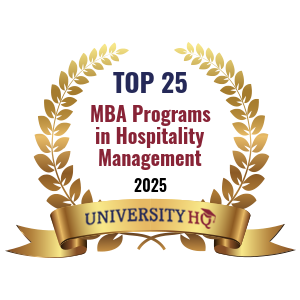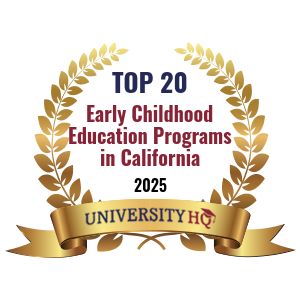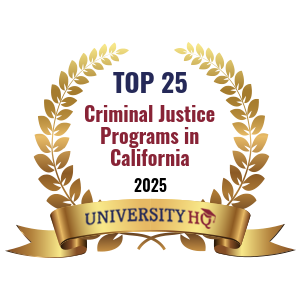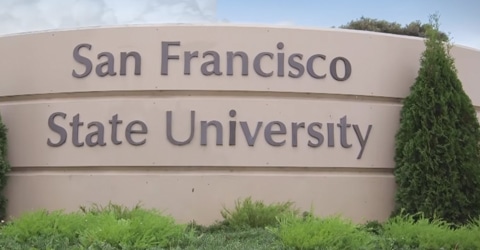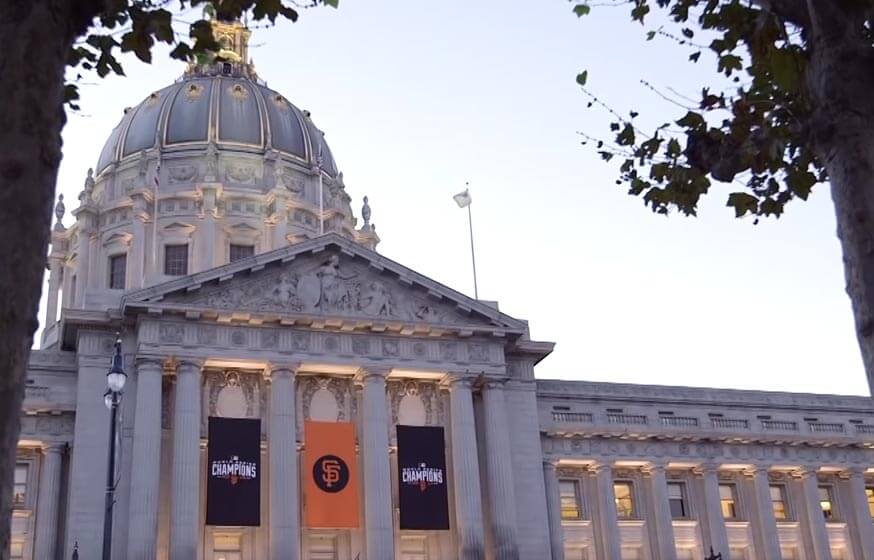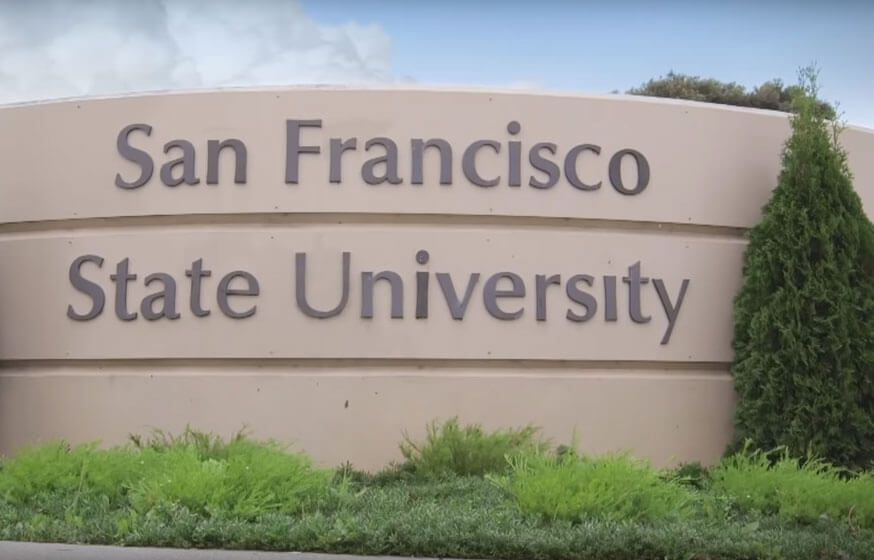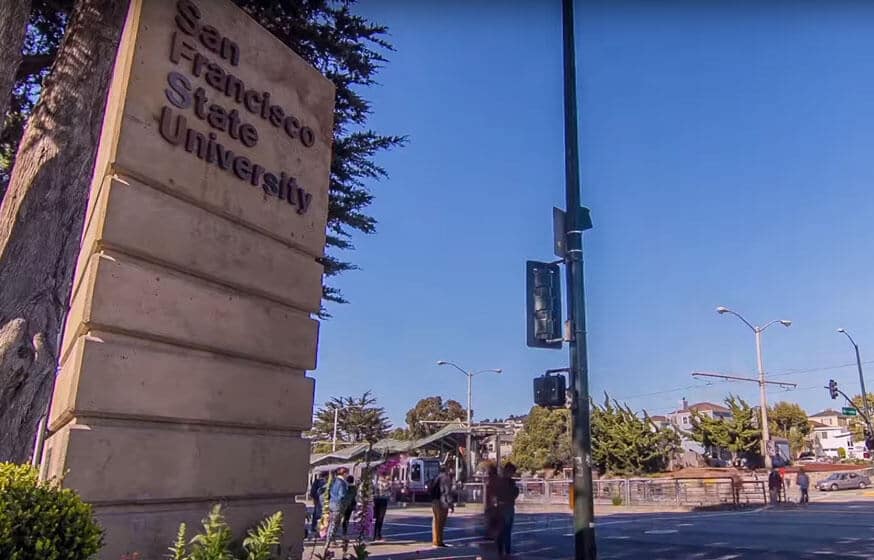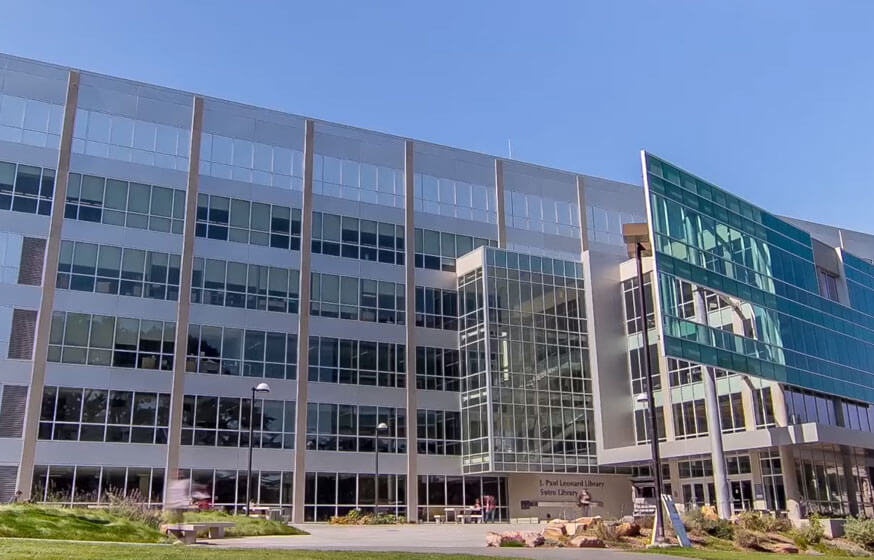Get Matched With Online Colleges
San Francisco State University has a new mentoring program that matches all incoming students with an upperclassman peer. That helps new students learn all about the campus and college life. The school also offers numerous recreation programs online as well as study groups, events, and opportunities to socialize with peers. Incoming students will find many ways to experience the diverse and vibrant community at SF State.
Search All Programs
Overview of San Francisco State University
The instructors also give more individual attention than they do at most schools and are available for one-on-one time with each student. Graduates of San Francisco State University are industry leaders in areas including journalism, film, business, and more. It’s also one of the primary feeder schools for major companies like Kaiser Permanente, Apple, Wells Fargo, and Google. They have strategic partnerships with companies like the CSU Entertainment Alliance and Genentech.
The Career Services and Leader Development Center supports every student and provides the necessary guidance required to launch them into work life.
General Information
| School Type | Public |
|---|---|
| Campus Setting | City: Large |
| Campus Housing | Yes |
| Student Faculty Ratio | 22:1 |
| Graduation Rate | 57% |
| Year Founded | 1899 |
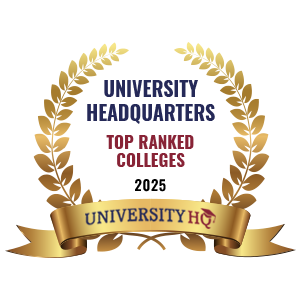
Student Enrollment
Total Students29,032
25,924
3,108
Undergraduate Student
Male 11,666
Female 14,258
Graduate Student
Male 1,399
Female 1,709
Explore Map
Top Rankings For San Francisco State University
Admissions
APPLICATIONS34,629
ACCEPTANCE23,201
Acceptance Rate67%
Enrollment 3,712
| Admissions | |
|---|---|
| Application Fee | $70 |
| High School GPA | Required |
| High School Rank | NA |
| High School Transcripts | Required |
| College Prep Courses | Required |
| Recommendations | NA |
| SAT/ACT | Required |
| TOEFL (Test of English as a Foreign Language) | NA |
| Application Deadline | November 30 |
| Common Application Accepted | No |
Tuition Cost & Financial Aid
Studies prove that students who begin their college journey at a 4-year university have a higher likelihood of earning their degree within four or five years, as opposed to those who begin elsewhere. The investment in higher education is also not always as expensive as many believe. With the availability of financial aid, students can expect to pay far less at SF State than the sticker price of $27,000 for in-state students or $39,000 for out-of-state students. The school has actually been placed on the list of America's Best Value Colleges by Forbes.
The government sets aside billions of dollars in financial aid each year for individuals who qualify. Students could receive loans, scholarships, grants, or a work-study program - all of which can considerably decrease a student’s out-of-pocket costs for education.
Taking advantage of the available aid is one of the best decisions a person can make toward investing in their future. Filling out the FAFSA and speaking with a financial aid advisor at SF State will help future students determine what they may qualify for and how to apply. At SF State, the average net cost of tuition (after financial aid has been applied) is $15,166. This can be somewhat less if your family’s annual income is lower and you are eligible for more financial aid, or it can be higher if the opposite is true.
| Average net price | 2018-2019 |
|---|---|
| Net Price | $15,166 |
| Average Total Aid | $9,433 |
| Students Receiving Financial Aid | 77% |
| Room & Board | $15,151 |
Sticker Price
- Tuition In-State - $7,266
- Tuition Out-of-State - $19,146
- Books and Supplies - $2,002
- Room & Board - $15,151
- Other - $2,568
Academics
Multiple organizations have ranked San Francisco State as one of the top 25 universities in the United States. That standing proves that the school is not only providing affordable higher education options but also enabling students to obtain gainful employment upon degree completion.
With more than 73 degree options, SF State has a variety of real-world experience-based opportunities in addition to work in the field and volunteer participation programs. Students at the university have participated in over 875,000 hours of community service time.
The retention rate for full-time students is an excellent 80% and 45% for part-time. The average retention rate across the country is 78%. Incoming freshmen will experience many new things. Some of those things can be a source of stress for students living on their own for the first time in a new environment. Add to that keeping up with their course load and making friends, it is understandable why some students may struggle. How well the college can respond to those freshman year issues is a determining factor in whether or not those students decide to come back to the university as a sophomore the following year. Individuals who do return and successfully complete their degree program get measured in the retention and graduation rates.
The graduation rate is also good at 57%. That may sound low, but since the average graduation rate is in the 60’s, it really is quite good. And that doesn’t include any students who transfer to another school and graduate from there. Those rates are in combination with a 22 to 1 student-to-teacher ratio, which is a bit high but not terrible.
Retention
Rate
4 year
Graduation
Rate
6 year
Graduation
Rate
Student Population Total
Student Population 29,032
25,924
3,108
Most Popular Programs & Majors
(# of Diplomas Awarded by Subject)
| All Business Majors | 1,544 Total Graduates / 24% |
|---|---|
| Business Administration and Management, General | 1,425 Graduates |
| Hospitality Administration/Management, General | 105 Graduates |
| Labor Studies | 14 Graduates |
| Communication, Journalism, and Related Programs | 667 Total Graduates / 10% |
| Speech Communication and Rhetoric | 366 Graduates |
| Radio and Television | 201 Graduates |
| Journalism | 74 Graduates |
| Radio, Television, and Digital Communication, Other | 26 Graduates |
| Visual and Performing Arts | 533 Total Graduates / 8% |
| Film/Cinema/Video Studies | 199 Graduates |
| Art/Art Studies, General | 109 Graduates |
| Design and Visual Communications, General | 61 Graduates |
| Interior Design | 48 Graduates |
| All Social Sciences Majors | 506 Total Graduates / 8% |
| Sociology | 130 Graduates |
| Political Science and Government, General | 126 Graduates |
| International Relations and Affairs | 73 Graduates |
| Economics, General | 58 Graduates |
| All Psychology Majors | 349 Total Graduates / 5% |
| Psychology, General | 349 Graduates |
| All Other Diplomas | 43% |
Outcome & Salary
Graduates from San Francisco State University have an advantage over their GED and high school diploma carrying counterparts. Their ability to obtain gainful employment with greater ease is significantly higher. The skills and experience alumni have also provides them a leg up in today's competitive job market.
With an SF State degree, graduates earn an average of $58,200 annually at the beginning of their careers. Once they reach mid-career, the salary expectation is closer to $100,800. Without a college degree, the average salary is $38,792.
| Graduates Salary | |
|---|---|
| College Grads Early Career Salary | $58,200 |
| College Grads Average Salary | $74,075 |
| College Grads Mid Career Salary | $100,800 |
| Return on Investment (ROI) | |
|---|---|
| 10 Year Salary Earnings Potential | $740,750 |
| 20 Year Salary Earnings Potential | $1,748,750 |
| Cost of Education (Net Price) 4 Year | $60,664 |
| 10 Year Projected ROI | $680,086 |
| 20 Year Projected ROI | $1,688,086 |
| No College Education Salary Comparison | |
|---|---|
| National Average Salary | $38,792 |
| 10 Year Projected Income | $387,920 |
| 20 Year Projected Income | $775,840 |
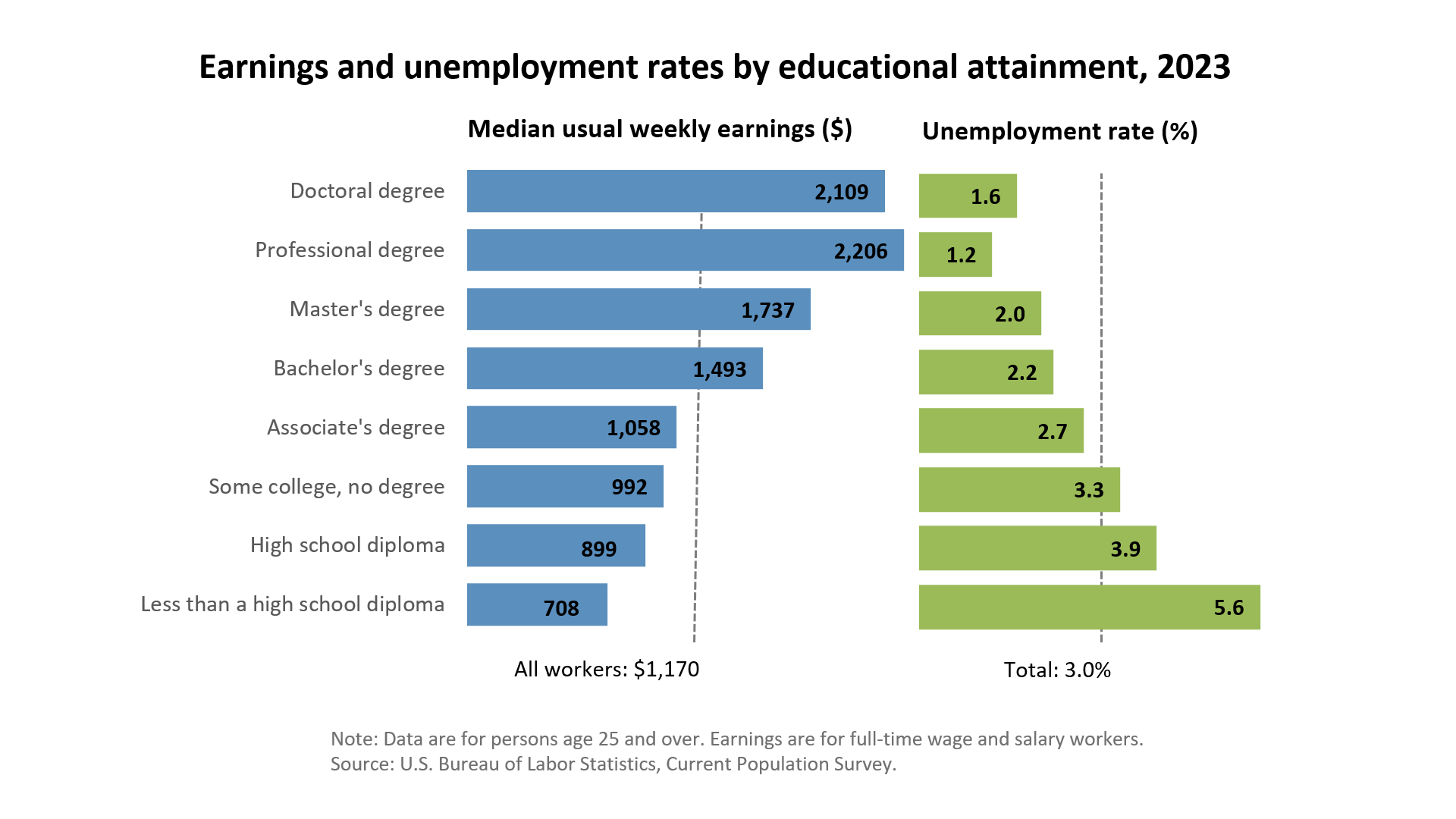
Related Top College Resources

